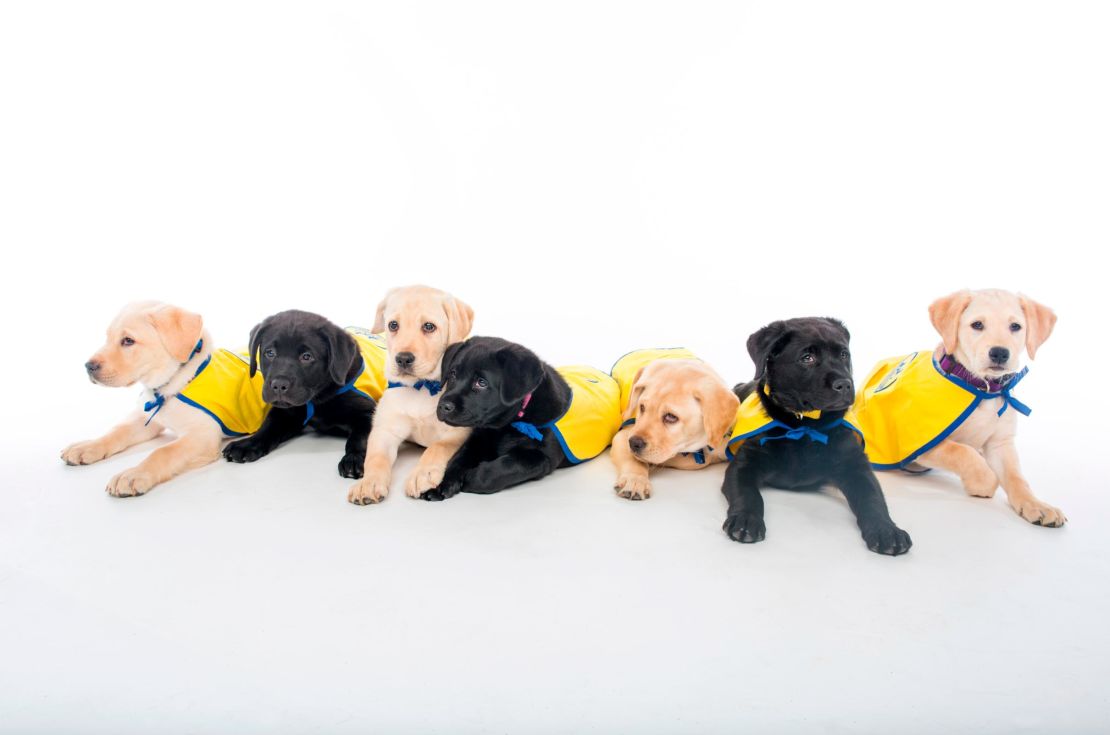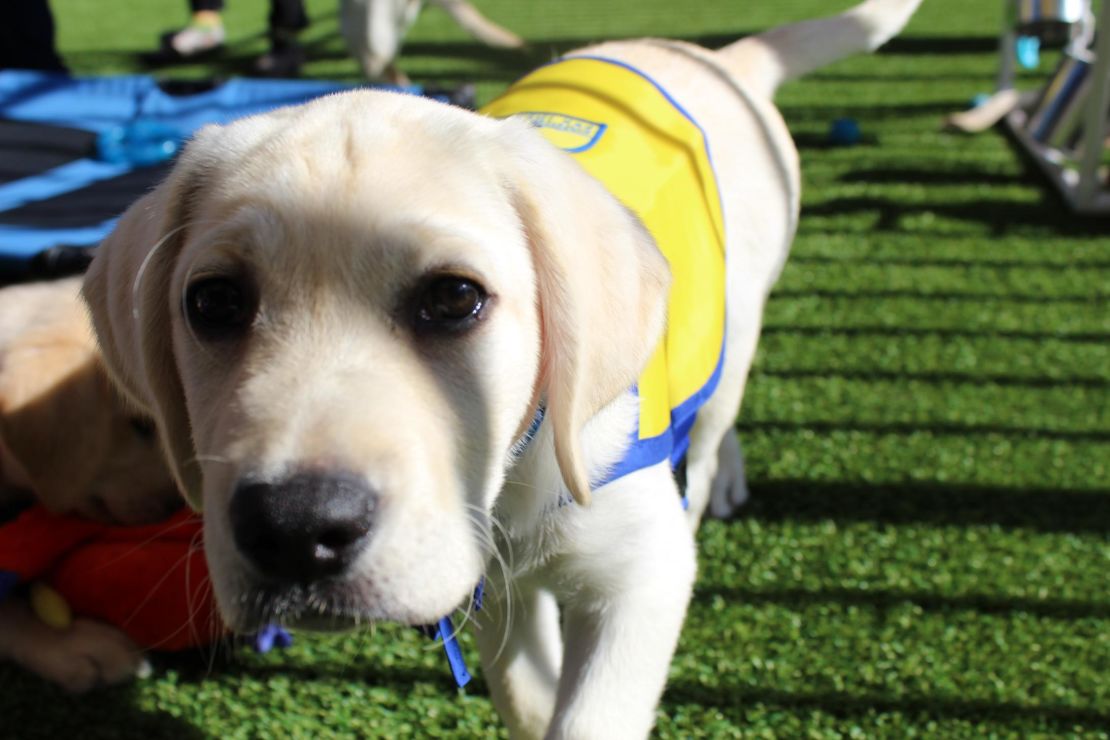Dogs being man’s – or people’s – best friend isn’t just a sweet saying. It’s backed by science, according to a new study that found despite weeks of human contact and upbringing, wolf puppies still don’t “get” humans as much as dogs do.
More than 14,000 years of hanging with humans has given dogs “theory of mind” skills – mental skills that allow them in some contexts to understand what people are thinking and feeling, according to the study published Monday in the journal Current Biology.

A previous study found that young domestic puppies have “early emerging skills to cooperate (and) communicate with humans,” said the current study’s senior author Brian Hare, a professor of evolutionary anthropology at Duke University in North Carolina.
But did dogs develop those traits through evolution or is it a product of thousands of years of domestication?
The new study, Hare says, shows the “early emerging skills that seem to be heritable really are a product of domestication, because wolves don’t have that same development or pattern of development.”

There is limited or inconclusive evidence on whether adult wolves, even if raised by humans shortly after birth, spontaneously respond to human gestures as dogs do.
So Hare and his team compared 44 dog puppies – Labrador retrievers, golden retrievers and golden-lab mixes mainly from Canine Companions for Independence – and 37 grey wolf puppies – from the Wildlife Science Center in Minnesota – that were all between five and 18 weeks old.
Ten to 11 days after the wolves’ births, they were raised by intimate, round-the-clock human contact, including being fed by their caregivers’ hands and sleeping in their caregivers’ beds each night.
The dog puppies, however, lived with their mothers until weaning at around 6 weeks old, and with their littermates until roughly 8 weeks old before they were sent to live with human families. During their first six to eight weeks of life, the dogs’ only interactions with humans were when humans had to do brief caretaking tasks.

Most of the dog puppies were tested at seven to eight weeks of age, and the majority of the wolf puppies between nine and 13 weeks old.
The researchers hid a treat in one of two bowls, then gave a pointing and gazing clue to each dog or wolf puppy to help them find the treat. In another test, the researchers set a wooden block near the bowl that the treat was underneath.
In each condition, the dog puppies outperformed the wolf puppies by choosing the indicated spot more often – even though the wolf puppies had spent significantly more time with people, the researchers found.
Additionally, 17 of 31 dog puppies consistently chose the correct bowl, while zero of 26 wolf puppies didn’t do better than a random guess, according to a news release. Dog puppies also were 30 times more likely than wolf puppies to approach human strangers.
Because both dog and wolf puppies were equal in terms of memory and motor impulse control, the findings aren’t about which species is “smarter,” said the study’s first author Hannah Salomons, a doctoral student in Hare’s laboratory at Duke University, in a statement.
“There’s lots of different ways to be smart. Animals evolve cognition in a way that will help them succeed in whatever environment they’re living in,” she said.

“With the dog puppies we worked with, if you walk into their enclosure, they gather around and want to climb on you and lick your face, whereas most of the wolf puppies run to the corner and hide,” Salomons said.
And when the researchers presented food in sealed containers, the wolves relied on themselves to figure out how to access the food, whereas the dogs more often looked to humans for help.
“Dogs are really one of the most successful species on the planet. There’s some estimate of over a billion dogs. They’re on every continent where you find humans. And sadly, there’s just a few hundred thousand wolves remaining,” Hare said.
The findings show why: Dogs’ human interaction skills have allowed them to bond with us, he added.
“Wolves that live wild are obviously fearful of humans, and that doesn’t allow them to have the same kind of relationship. And unfortunately, it means that humans have harassed and hunted and done terrible things to wolves, so there’s not many left.”
Future research on the dog-human bond
The researchers’ discovery isn’t only exciting because it helps us understand the friendly connection between dogs and humans, but also because “dogs have a lot of jobs” such as assistance and detection, Hare said.

The study “really sets up a possibility to think about how we could use artificial selection to maybe even breed lines of dogs that may be even better at solving some of the problems they have solved when they are working,” he added.
Choosing certain dogs for reproduction for these purposes is a slightly separate issue from the pet breeding versus adoption debate, Hare said. “The real issue is when people commercialize dog breeding and try to profit and then, you know, they try to increase their margins and profit by reducing the cost of making sure the dogs have a really good life,” he said.
Get CNN Health's weekly newsletter
Sign up here to get The Results Are In with Dr. Sanjay Gupta every Tuesday from the CNN Health team.
The researchers are now interested in studying “how wolves outperform dogs in other kinds of abilities, and that’ll be fun to see,” Hare said.
“I think that will help people appreciate and understand wolves more because they are remarkable, and we owe them a great debt of gratitude because not only are they just wonderful in their own right, but they help us understand our relationship with dogs and help us learn about ourselves, too.”
















